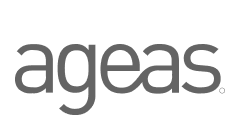Records
The Guinness Book of Records is a reference book published annually in 100 countries and in 23 languages, listing world records both of human achievements and the extremes of the natural world. The book was first launched back in August 1954 and actually started out as an idea for a book of facts to solve arguments in pubs. The idea came about in the early 1950’s when the Managing Director of the Guinness Brewery, attended a shooting party in Ireland where he and his hosts argued about the fastest game bird in Europe, and failed to find an answer in any reference book. Interesting to note that the book itself holds a world record, as the best-selling copyrighted book of all time and continues to be a best-seller each year.
The Guinness Book of Records will have to add the S&P 500 & the Russell 2000 index to their new edition (financial section) as last trading week both US equity indices set record highs. On Friday the S&P 500 index closed at a record peak of 2,874.69 points topping its previous record high of 2,872.87 on Jan. 26 and equalling the record for the longest-ever US bull-market in history at 3,452 days, topping the 1990-2000 bull tech run and rising some 325% since the low (676.53 points) recorded in March 2009. The Standard & Poor's 500 Index is a market-capitalization-weighted index of the 500 largest U.S. publicly traded companies by market value and the benchmark for the broader U.S. equity markets. Since the start of the year the S&P 500 index has risen some 8%. Also on Friday, the Russell 2000 index, which is less affected by global tariff disputes than its large-cap peers, also achieved a new record high of 1,725.67 points. While the S&P 500 index is the benchmark for large capitalization stocks, the Russell 2000 index is a commonly used benchmark for companies that identify themselves as "small-cap” and measures the performance of approximately 2,000 small-cap companies. As at December 31, 2017, the average value for a company on the Russell 2000 was $2.4 billion with the median market cap of $861 million. Many US investors regard the Russell 2000 index as an important guide to the American economy because it measures the performance of smaller, domestically focused businesses. Since the start of the year the Russell 2000 index has risen some 12%. However, the fact US equity markets as of last week are in the longest bull market in history did raise some questions on the effects of cheap money and whether this uptrend can continue considering that central banks are removing their market support and persistent global trade war worries.
Last trading week the Ageas share closed at EUR 44.65 (+0.2%) slightly underperforming the SXIP 600 Insurance Index (+0.6%)
